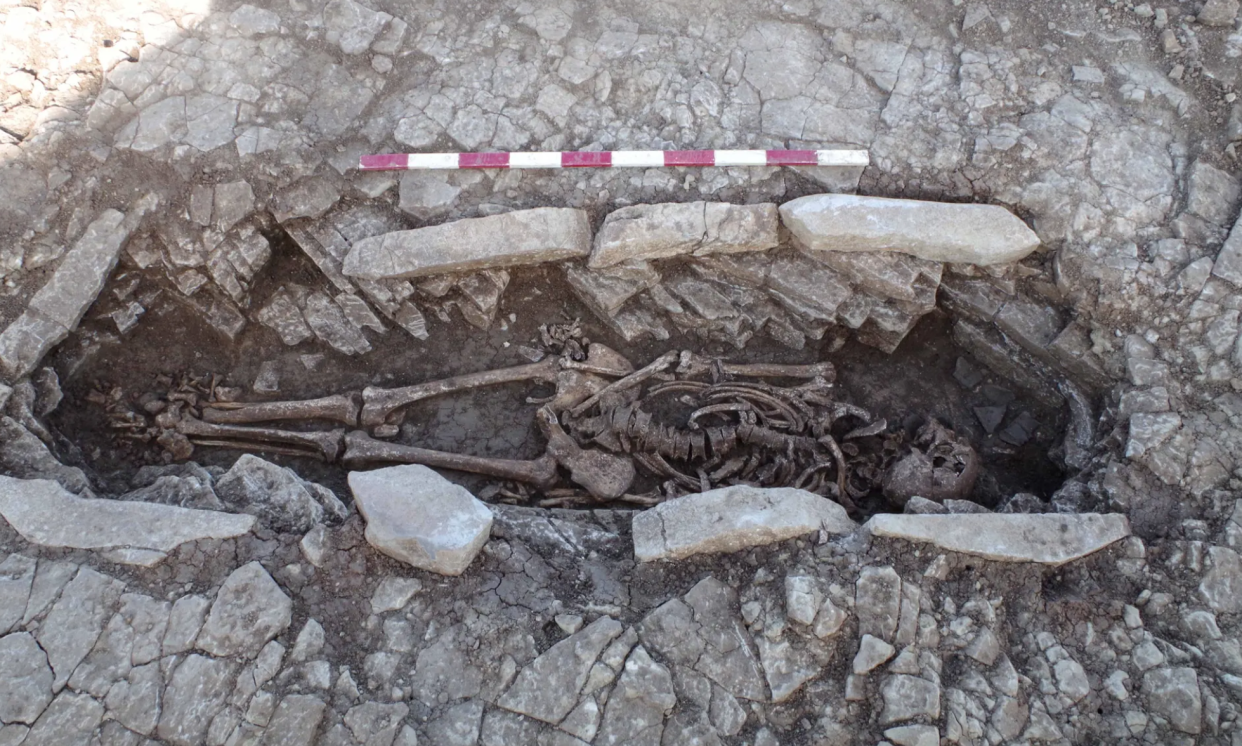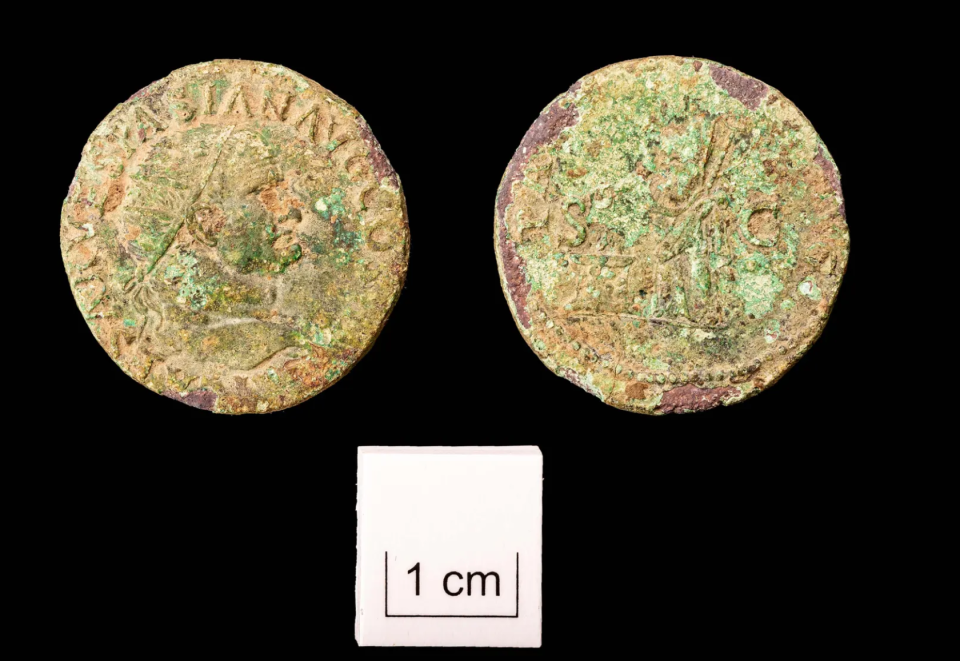Graves of about 50 'high-status' Romans discovered in Somerset

The graves of dozens of “high-status” Romans have been discovered in Somerset during building work for a new school.
The remains of more than 50 adults and children were found in Somerton, near Glastonbury, buried with ornaments including a pot containing a chicken wing and a piece of carved bone.
According to archaeologists involved with the dig, the graves are more grand than simple Roman graves – indicating that the individuals buried were of high status.
They cited the position of one woman’s skull which indicated her head may have been resting against a pillow.

Jewellery was also found in the graves as well as a coin dated to the time of Emperor Vespasian, who ruled from around 69-79 AD.
Tiny nails were also found at the bottom of a lot of the graves, indicating these people were buried in hobnail boots.
The structure of many of the graves was also said to be unusual, with many having been sealed with stones which were used to create roofs.
Steve Membery, an archaeologist and member of the South West Heritage Trust, told The Guardian: "This site is a significant discovery. The individuals were evidently of some status.
READ MORE FROM YAHOO NEWS UK:
Winter solstice 2019: Why do pagans celebrate the shortest day of the year?
Archaeologists discover remains of vast Mayan palace in Mexico
Richard III and a Roman rabbit: the finds of the decade
"Most graves in Roman Britain are pretty much a rectangular cut with someone laid on their back.
"They’ve actually built these graves. There’s been a lot more care taken over these."
Mr Membery said he believes the people buried at the site may have worked at a nearby Roman villa.
Archaeologists think a large estate may be undiscovered nearby as an outhouse and a barn associated with it have been found.
Experts will now carry out DNA analysis on the individuals to try and work out why they were buried at Somerton.

